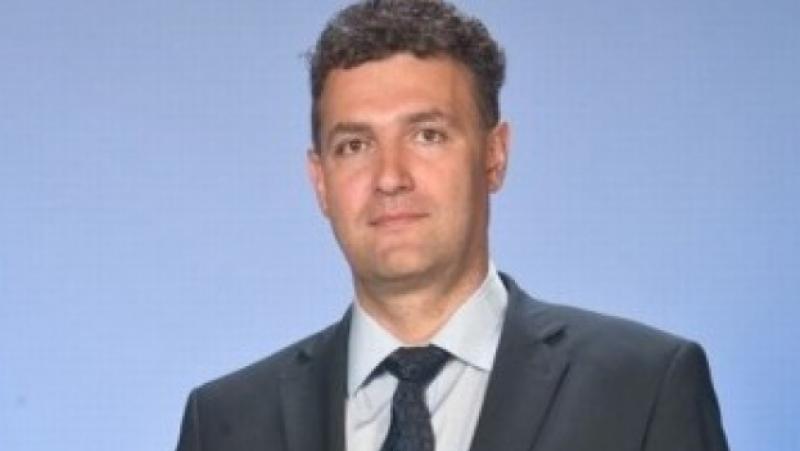/ world today news/ Valentin Nikolov, director of Kozloduy NPP, told “Vseki den” about the increase in the price of electricity and the construction of the 7th block of Kozloduy
Mr. Nikolov, how do you feel in your new post as director of Kozloduy NPP?
I still can’t judge (laughs). In general, I have a lot of work here, I get home late. I work hard – that’s my main feeling.
How did you find the headquarters?
Working, thank God. I welded it in good condition. But, of course, there were things that could be touched, as they say. And that’s what we’re doing right now, fixing whatever needs fixing.
What steps are you taking for the construction of the 7th block?
The Council of Ministers decided that such a block would be built. After that, an interdepartmental commission was created, which I head. The first thing we did was notify the Ministry of Environment and Water about the construction. We have created a pre-project company, which is called “Kozloduy NPP new capacities”. We have prepared a tender for a pre-project study. We are trying to start all the necessary activities at the same time to speed up the process. At the same time, there are talks with specific investor companies. So I think things are going pretty well.
We wanted independence from Russia, didn’t we? Why are we offering her to participate in the project again?
In no case will we be dependent on Russia. We are moving towards a hybrid project. The nuclear island will be Russian, because it has already been made by order of NEK for the Belene NPP. It is reliable and safe enough. The non-nuclear part of the project (the turbine and the generator) will be awarded to another investor.
What companies have shown interest?
There is great interest from both American and European companies.
Russia had promised us cheaper gas. But then he said he’d only give it to us if we signed to South Stream. Was that arm wringing again?
No. It’s a business decision – we give to you, but you also have to give to us. I think that the protocol will be signed very soon. I am not part of the negotiations, but I know that an agreement will be reached soon. That is, the Russians will give us cheaper gas on April 1, and we will fulfill our South Stream commitments. There were some things that needed to be worked out, and the minister was reluctant to sign anything before everything be categorically specified.
The new electricity price increase is final. Going forward, how do you see the price of this service?
The price of electricity will only increase. That’s clear. This is due to the carbon emissions that come in, as well as renewables, which in one year have increased dramatically. This in turn increases the transfer fee. On the other hand, in order to compensate and reduce the price of electricity, the DKEVR uses the increase in the quota for the regulated market of the Kozloduy NPP. This increases the social effect of the plant, and if there are still opponents of the NPP in the country, it should they know that they owe the payment of cheaper electricity thanks to the nuclear plant.
Does this mean that the 7th unit of the plant will bring us cheaper energy or at least hold the price?
The new unit will operate on a market basis. It will have a cost price of its production, and the price of electricity from it will be determined by the market. We are moving towards a free market. From January 1 of next year, average capacities will leave the regulated market and we will increasingly move to the free market. This means that the price of electricity will be determined by supply and demand. Then the state commission will stop giving regulated prices. Its function will be to regulate relationships, licenses, etc. Energy from the new block will compete freely on the market. And thanks to having the infrastructure in place, thanks to the fact that there are specialists who are licensed and trained already, I can say that the energy of the Kozloduy NPP will be cheap enough to be able to compete. This, that we have trained specialists is very important because human resources are the most expensive.
Does the Bulgarian know how to save energy?
The Bulgarian knows how to save energy, but he does not know how to save it correctly. We turn off the light bulbs, but we don’t replace them with energy-saving ones. We’d rather buy 100 50 cent light bulbs and turn off the lights when needed than invest in energy efficient lighting. The Bulgarian must learn how to save effectively. This is done through high technology, not through self-inflicted material possessions.
What advice would you give to Bulgarian users?
Let everyone make a table of benefits and costs. He has to save so much time, so much money it will cost, and in the end he will understand that by investing some of his funds in high-tech energy things, the money will return to him many times over. You just have to assess things and go in that direction.
Recently there has been talk that we have a lot of gas deposits in the Black Sea. To what extent can they be relied upon?
I can say that we can count on the gas reserves also outside the Black Sea, on the continental shelf. The deposits in the Black Sea are proven by the presence of deposits in the Romanian territory, where the company OMV discovered between 60 and 100 billion. cubic meters of gas. We have the same shelf so I expect we will have large quantities as well. Considering the availability in the continental part, Minister Dobrev said that we can satisfy our gas needs in the next 30 years without using foreign gas.
Until recently, we relied on “Nabucco”, but subsequently it turned out that we are starting to pull away from the project.
My opinion is that the project is going to the end because the pipe is not known when it will be filled. That is, it will not be able to be paid off and it is not known when there will be a return. There are three options for us – the TANAP trans-Anatolian gas pipeline, Nabucco West, which runs from the Bulgarian-Turkish border to Austria, and the British Petroleum project. All three options for bringing Azerbaijani gas can use our gas transmission network without building new Our system can currently absorb 10 billion cubic centimeters and pass them from Turkish to Romanian territory way, without investing any money, we will profit from transit fees. So all three projects are relevant for us, we support them.
#price #electricity #rise
**PAA: Evaluating Diversification Strategies:** To what extent does the interview explore the pros and cons of Bulgaria’s energy mix diversification, including renewables, nuclear, and gas, in ensuring long-term energy security and affordability for consumers?
## Interview: The Future of Electricity Costs in Bulgaria
This in-depth interview explores key issues surrounding Bulgaria’s energy landscape, featuring insights from two prominent figures.
**Participants:**
* **Mr. Valentin Nikolov**, director of Kozloduy NPP
* **Ms. Ivanka Georgieva**, Leading Energy Economist
**Moderator:** Thank you, Mr. Nikolov and Ms. Georgieva, for participating today. Let’s begin by examining the recent electricity price increase and its impact on Bulgarian consumers.
**Section 1: Electricity Pricing & Consumer Impact**
* Mr. Nikolov, you mentioned that the price of electricity is set to rise further. Could you explain the primary drivers behind these increases and their long-term implications for Bulgarian households and businesses?
* Ms. Georgieva, do you agree with Mr. Nikolov’s
analysis? What additional factors might contribute to rising electricity prices in Bulgaria? What impact do you foresee on the economy and the well-being of Bulgarian citizens?
* What steps can the government and energy providers take to mitigate the burden of rising electricity prices on consumers, particularly vulnerable groups?
**Section 2: The Future of Kozloduy NPP & Nuclear Energy in Bulgaria**
* Mr. Nikolov, the construction of the 7th block at Kozloduy NPP is a significant undertaking. Can you elaborate on the advantages this project is expected to bring to Bulgaria’s energy security and the economy?
* Some critics argue that investing in nuclear energy is risky. How do you respond to these concerns? What safety measures are being implemented to address these potential risks?
* Ms. Georgieva, what is your perspective on the role of nuclear energy in Bulgaria’s future energy mix? What are the potential benefits and drawbacks of relying on this technology?
* Do you believe Bulgaria should pursue a more diversified energy strategy, incorporating renewable sources alongside nuclear and gas?
* Mr. Nikolov, you mentioned that the 7th block will operate on a market basis. How do you anticipate this will impact consumers’ electricity bills?
**Section 3: Gas Exploration & Energy Security Beyond Nuclear**
* Mr. Nikolov expressed optimism regarding Bulgaria’s potential gas reserves in the Black Sea. Ms. Georgieva, how likely is it that these reserves will meet Bulgaria’s future gas needs?
* With the future of the “Nabucco” pipeline uncertain, what alternative gas supply options does Bulgaria have?
* How important is it for Bulgaria to diversify its gas suppliers and reduce dependence on any single country?
**Section 4: Consumer Responsibility & Energy Efficiency**
* Mr. Nikolov, you highlighted the need for Bulgarians to become more efficient in their energy consumption.
What specific recommendations would you offer to consumers who want to reduce their energy footprint and costs?
* Ms. Georgieva, how effective are government initiatives currently in promoting energy conservation? What additional measures could be implemented to encourage energy efficiency among consumers?
**Concluding Remarks:**
* Based on the discussion today, what are the key takeaway messages for Bulgarian citizens concerned about the future of their energy security and affordability?
* Where do you see Bulgaria’s energy landscape heading in the next decade? What are the biggest challenges and opportunities that lie ahead?


